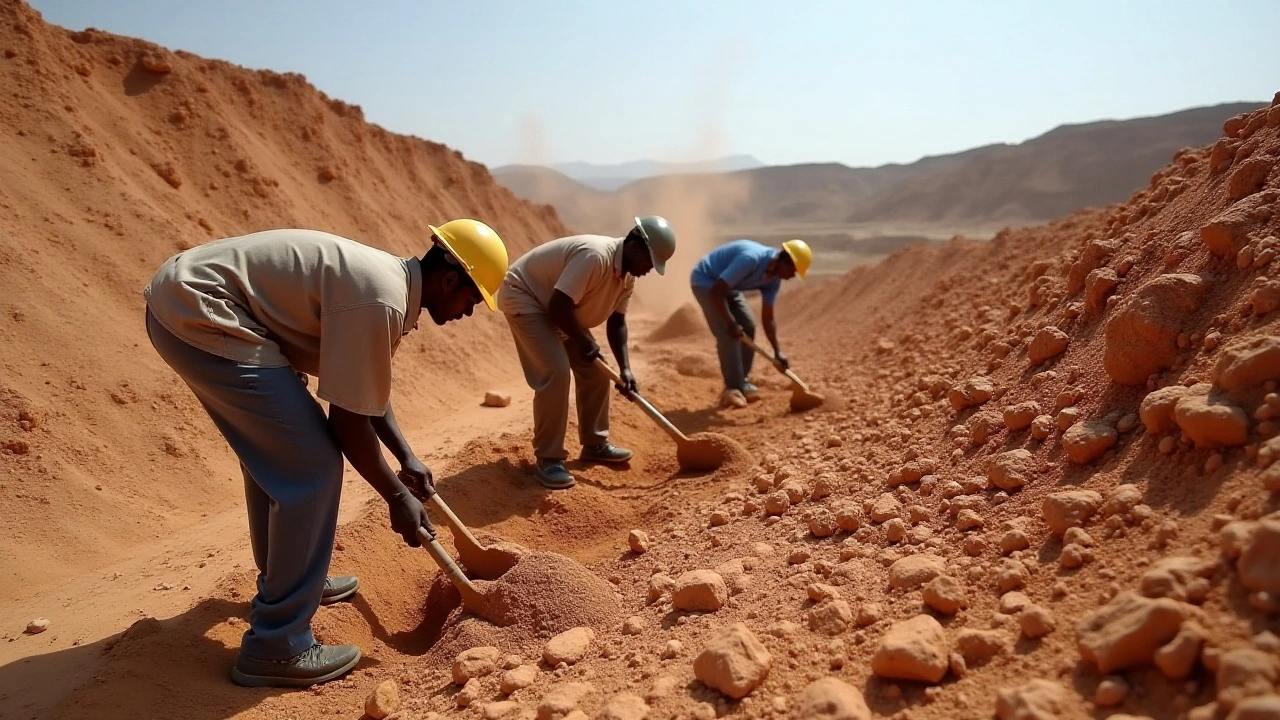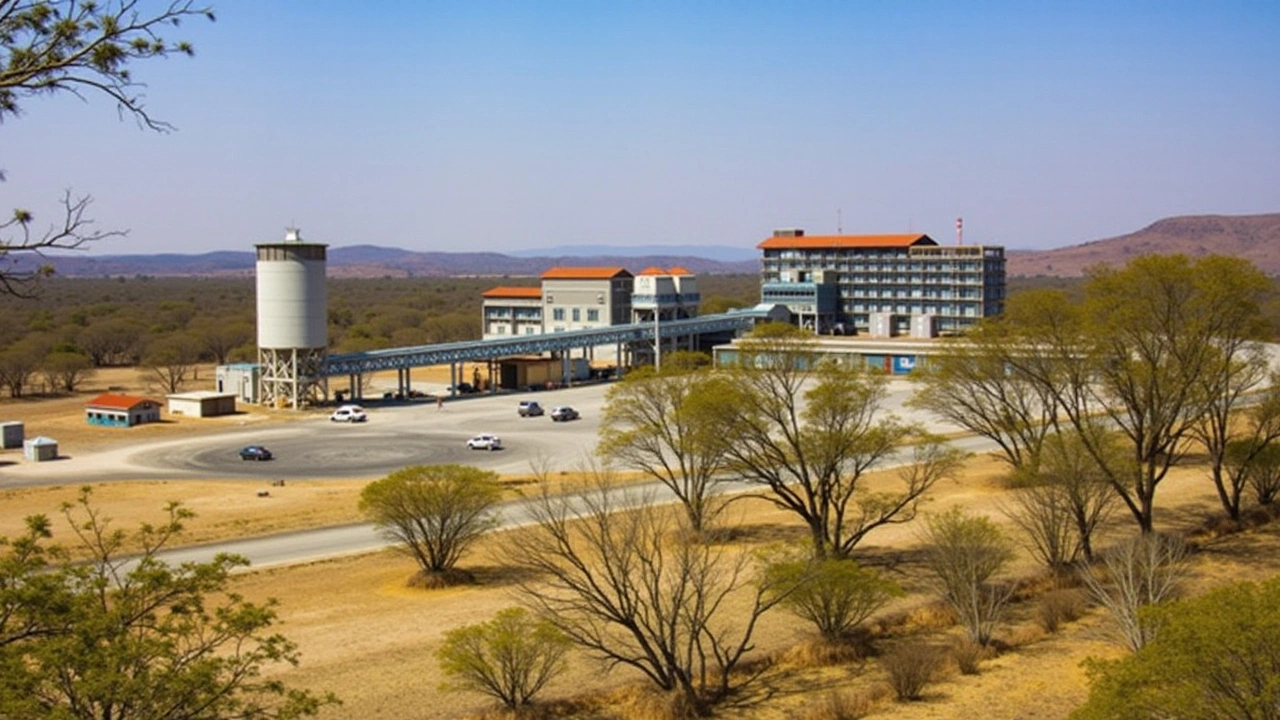Zimbabwe's Strategic Initiative to Boost Mineral Processing Amid Global Lithium Demand
 Oct, 11 2024
Oct, 11 2024
Zimbabwe’s Ambitious Plans to Enhance In-Country Mineral Processing
In a significant move to harness its natural resources, Zimbabwe, recognized as Africa’s prime lithium producer, is taking strategic steps to amplify its mineral processing capabilities domestically. The government has initiated a series of incentives aimed at encouraging local processing of lithium, aligning with global clean energy trends. This initiative dovetails with Zimbabwe's broader economic vision––the Vision 2030 policy––which aspires for a robust mining-driven USD12 billion economy by the year 2023, positioning mining as the linchpin of its economic development plan.
The Lithium Boom and Zimbabwe's Resource Wealth
Lithium, often dubbed 'white gold,' is critical to the energy transition sweeping across the globe. With its extensive reserves, Zimbabwe stands at the forefront in Africa, making it pivotal in fuelling this transformation. Lithium is indispensable for the manufacturing of batteries, which power electric vehicles and various forms of clean energy technology. By compelling companies to establish processing plants within its borders, Zimbabwe aims to not only tap into immediate economic gains but also secure long-term benefits from its lithium deposits.
Mandate for Local Processing: Plans and Potential
Zimbabwe has unequivocally banned the export of raw lithium ore to ensure that its mineral wealth contributes to its economic prosperity. This mandate, encapsulated by the Base Minerals Export Control Act, requires that all lithium undergo processing locally, which bears the potential to create numerous jobs, stimulate technological advancements, and contribute to local revenue. This policy encourages the establishment of sophisticated facilities capable of processing lithium to higher purities, necessary for subsequent industrial applications.
Key Industry Players and Investments
At the forefront of mining and processing in Zimbabwe are Chinese-owned enterprises like Zhejiang Huayou Cobalt, Chengxin Lithium Group, and Sinomine Resource Group. Their substantial investments signify confidence in Zimbabwe’s potential to significantly contribute to the global lithium supply chain. These companies have spearheaded the establishment of processing plants designed to handle considerable amounts of lithium concentrate annually. Such ventures not only promise economic dividends but also serve as technological conduits for know-how and skills.
Balancing Local Benefits and Global Concerns
The policy decision has not been without its critics and concerns, particularly regarding the global supply of critical minerals needed for decarbonization efforts. Experts underscore the need for a balanced approach that doesn’t stymie international efforts to curb carbon emissions. Nonetheless, the argument stands that trained local workforces fortify investment retention by fostering a skilled labor pool adept in new technologies and methods. Regional cooperation, infrastructural advancements, and collaboration with international stakeholders are highlighted as essential components for sustainable mineral processing success.
The Broader Economic Vision
With rich lithium assets under its soil, Zimbabwe is setting its sight on meeting 20% of worldwide demand once its full mineral capacity is harnessed. Such ambitions are interlaced with prospects for establishing technology-centric industries within the nation. The government is hopeful that moving towards higher-valued added products, like lithium batteries, can spur innovation and self-sufficiency, opening new avenues in global trade markets.

Conclusion: A New Era for Zimbabwe’s Mining Sector
Zimbabwe's determination to bolster its domestic mineral processing is a reflection of a pragmatic vision, connecting its natural endowments to economic aspirations vis-à-vis global energy demands. Establishing a framework that balances local economic needs with the global green agenda is imperative. As the country embarks on this ambitious journey, the potential for transformative growth echoes across its policy corridors, promising widespread socioeconomic benefits hinged on strategic resource utilization and innovation.

Elizabeth Price
October 12, 2024 AT 03:59Steve Cox
October 12, 2024 AT 23:35Aaron Leclaire
October 13, 2024 AT 12:15Mitch Roberts
October 15, 2024 AT 09:57Mark Venema
October 15, 2024 AT 16:59Brian Walko
October 17, 2024 AT 16:00Derrek Wortham
October 18, 2024 AT 08:06Deepti Chadda
October 19, 2024 AT 03:16Anjali Sati
October 19, 2024 AT 11:52Preeti Bathla
October 20, 2024 AT 10:46Aayush ladha
October 21, 2024 AT 05:15Rahul Rock
October 22, 2024 AT 08:51Annapurna Bhongir
October 22, 2024 AT 10:27PRATIKHYA SWAIN
October 23, 2024 AT 22:51MAYANK PRAKASH
October 24, 2024 AT 21:48Akash Mackwan
October 25, 2024 AT 08:34Amar Sirohi
October 26, 2024 AT 16:53Nagesh Yerunkar
October 27, 2024 AT 09:42Daxesh Patel
October 28, 2024 AT 15:27Jinky Palitang
October 28, 2024 AT 19:39